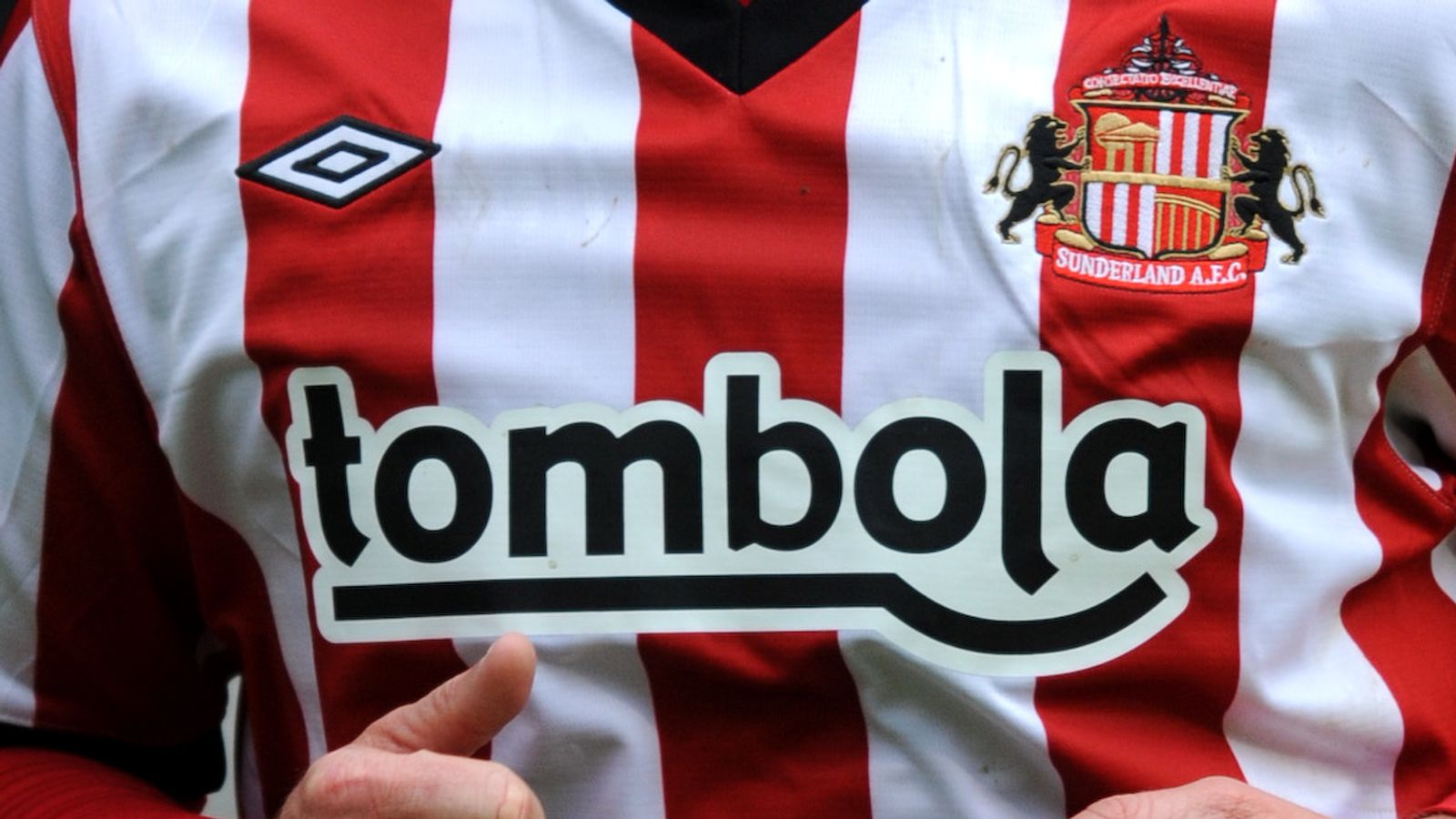It’s probably fair to say that no one has come up on the bingo to quite the extent that Phil Cronin and his family have.
The Sunderland-based entrepreneur, 57, is in line to collect £402m from the sale of Tombola, one of the UK market’s leading online bingo operators.
The buyer is Flutter Entertainment, the FTSE 100 gaming giant best-known for its ownership of Paddy Power, Betfair, Sky Bet and PokerStars.
Tombola, which sponsors the ITV programme I’m A Celebrity, Get Me Out of Here and which was previously the shirt sponsor for Sunderland FC, was founded by Mr Cronin in 2006.
It employs some 700 people in Sunderland and Gibraltar and has, on average, 400,000 playing customers each month.
The sale, announced today, is the latest milestone in a long business journey for the Cronin family.
Tombola was born out of Edward Thompson, the family printing business, which was founded in Sunderland in 1867.
HS2: Eastern leg of high-speed line to Leeds scrapped and plans for Northern Powerhouse Rail downgraded
Integrated Rail Plan: With cuts to HS2 and Northern Powerhouse Rail, travelling public have cause to feel let down over government’s new rail plan
As Boris Johnson is accused of ‘betraying’ the North, this is what he’s said on HS2 and Northern Powerhouse Rail since becoming PM
Owned by the family for five generations, it continues to be run by Mr Cronin’s brother, Paddy.
It had previously been a small printing business but became a much larger concern under Phil and Paddy’s father, Frank, who joined in 1953 after he returned from national service.
He identified a business opportunity when a local priest, Jeremiah O’Callaghan, ordered some bingo tickets for a parish fund-raising exercise.
The first cards had to be supplied by a firm in Ipswich but Frank Cronin quickly realised he could supply Father O’Callaghan.
From those humble beginnings, Edward Thompson mushroomed in size as Britain went bingo-mad in the 1960s, becoming first the UK’s and then the world’s biggest producer of bingo cards and tickets.
Phil Cronin joined the business after graduating from Durham University with a degree in computing and electronics and became its managing director at the age of 28.
By then, the firm had carved out a lucrative business supplying bingo cards to national newspapers, which in the 1980s had alighted on bingo as a major way to boost circulation.
In 1995, he set up a business called Intermedia Games, to sell promotional game cards produced by Edward Thompson.
From that came Tombola.com in 2000, which sold online scratchcards and other games, both on its own account and for commercial partners such as Virgin Radio.
From that in turn came the Tombola bingo website.
It expanded into Europe in 2012 and is now also the biggest online bingo operator in Spain and Italy.
The company is proudly Sunderland-based.
The Tombola Academy was set up in partnership with Sunderland College in 2014 with the aim of recruiting and training local talent to come up with new games and work on web developments.
Mr Cronin has made much about the company’s intellectual property having been designed and developed on Wearside.
Its workforce has more than doubled during the last decade and, two years ago, it opened a new £7m headquarters, Tombola House, in the city.
The business suffered a drop in profits due to both the start of the pandemic and a higher wages bill but, according to figures published today, Tombola notched up sales of £164m in the year to the end of April – generating operating profits of £38.5m.
According to Peter Jackson, Flutter’s chief executive, one of the attractions of Tombola was its policy on safer gambling.
It was the first major UK-focused operator to introduce both mandatory staking and deposit limits, with maximum net deposit limits of £250 per week and £500 per calendar month, while the maximum amount a player can deposit into their account at any one time is £250.
In doing so, the business was ahead of its time, with seven in 10 online bingo players now thought to use deposit limits.
Mr Jackson said: “As the world’s leading online gambling operator, Flutter is delighted to add Tombola, the UK’s premier bingo brand, to the Group.
“Tombola is a business we have long admired for its product expertise, highly recreational customer base and focus on sustainable play.
“The brand aligns closely with Flutter’s safer gambling strategy, a key area of focus for us.
“I am excited to combine Flutter’s digital marketing expertise with Tombola’s operational capabilities within the UK & Ireland division.
“As the time comes for Phil to hand over the reins, I would like to thank him for building the success story that the business is today, and I look forward to welcoming the Tombola team to Flutter and growing a sustainable business for the future together.”
The sale values Tombola at considerably more than most sector-watchers thought the business was worth.
Mr Cronin dropped out of the Sunday Times Rich List this year but, last year, the newspaper put a value on Tombola at £150m.
That Flutter has paid considerably more than that for the business highlights the growing profitability of the online bingo sector.
888 Holdings, the FTSE 250 online gaming group, paid £18m for a portfolio of online bingo brands, including Costa Bingo, two years ago.
It is, however, a very competitive market.
Mecca, owned by Rank Group, has parlayed its position as the UK’s biggest operator of physical bingo halls into a major online presence, as has another physical operator, Gala, which is owned by Entain, the owner of bookmakers Ladbrokes and Coral.
It also owns several other online bingo brands, including Foxy Bingo and Cheeky Bingo.
Another major player is Sun Bingo, owned by The Sun newspaper, which has had an online bingo business dating back almost as long as Tombola itself.
To Flutter now falls the challenge of building on Tombola’s share of this crowded market.
As for Mr Cronin, it would be no surprise to see him putting more money into charitable causes, something the family and the Tombola business has long been known for in Sunderland.
That generosity has even, in the past, extended to the football club.
Frank Cronin became a director of Sunderland FC in the 1970s and at one point, when the club fell on hard times, even paid the wages bill from his own pocket.
By the time he died of Alzheimer’s disease, in 2015, Edward Thompson was supporting the Alzheimer’s Society.
Mr Cronin would doubtless have been impressed by the fortune his son crystallised today.






















